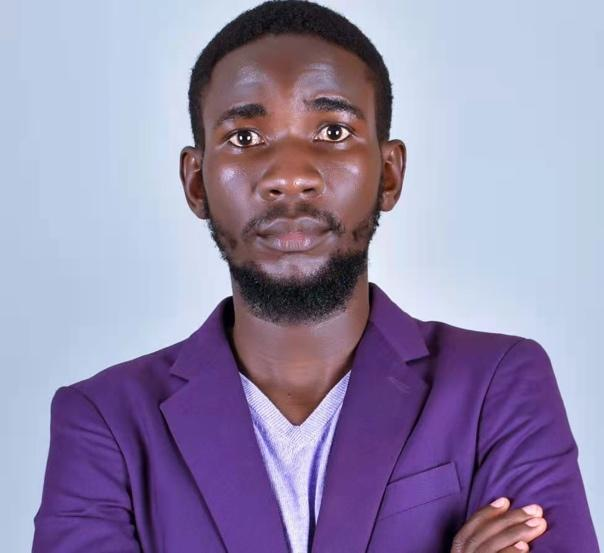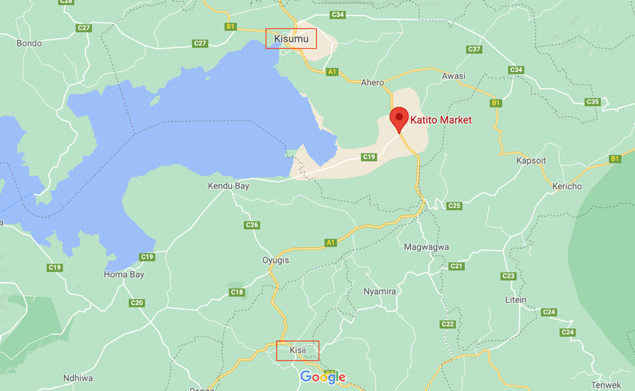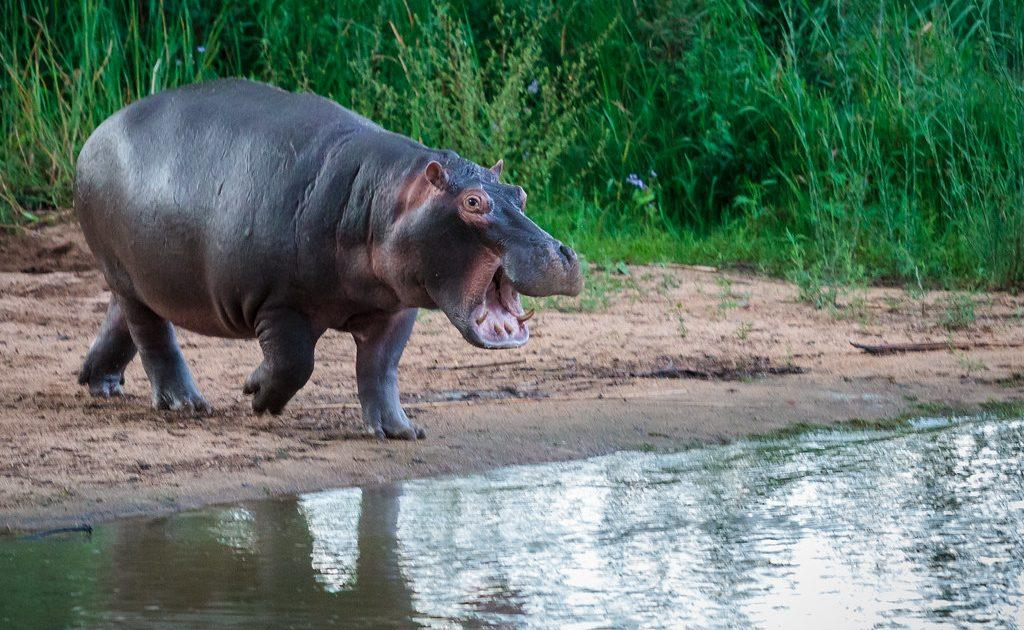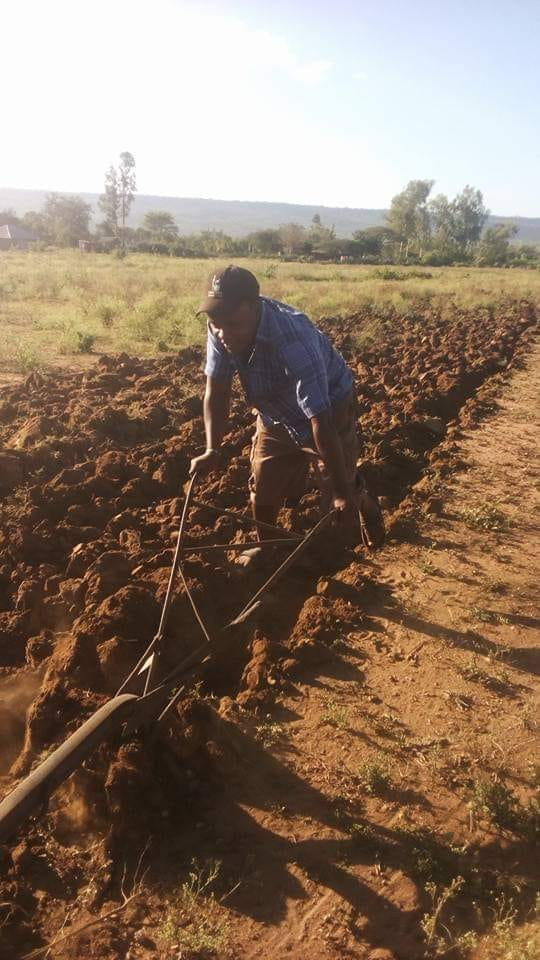Just Follow The Cows | Roy Willis Ong’udi.
Roy Willis Ong’udi is from Kenya. He has served in various capacities in organizations like World Vision Kenya and Hope Worldwide Kenya in programs aimed at reducing the spread of HIV. Passionate about education, at the age of 17, he volunteered as a Physics and Mathematics teacher at a local school, heading the Physics Department thus fostering the first student, also the only one so far, to get grade A in Physics. He’s now the co-founder of ‘Help a Child’, a CBO operating in Nairobi whose main goal is to help young disadvantaged children fulfill lives by providing them with basic necessities of life.
Modernization greatly changed the life of local people in Katito. At the beginning, they hesitated to welcome such modernization and wanted to “follow the cows”. But after so many changes, they have learnt to embrace changes now.
Roy Willis Ong’udi.
Modernization quickly changed our family status from wealthy to poor. The cows my dad owned are now seen as backward in our village which is slowly becoming a market center. Modern jobs such as vehicle, bicycle and motorbike repairing are becoming the admired occupations for village youths who mostly didn’t have the patience of going to school.
It’s just two decades ago, in 2003, Kisumu County, Kenya when teachers were the richest people in our village. No one owned a car and only a few people had bicycles. There were fewer than 5 bicycles in the vast area of Katito, and my dad was one of the owners. He felt wise and proud of his achievements. The bicycle was strictly ‘his’- Nobody was able to touch it except on the very few occasions we were ordered to clean it.
My dad was a lucky man who inherited both cows and land from my grandpa. In our culture, cows are the measure of wealth and cows go hand in hand with one’s land size since the large herd required a big piece of land for grazing. Fortunately, our family had over 90 cows with several calves at that time. Milk was in plenty at home and the extra milk production were sold to the teachers who seemed to have nothing to do with their good pay.
Katito grew so rapidly in the past few years thanks to its strategic location. The newly built Kisumu-Kisii highway that passes through the heart of Katito gives it such a busy look and has attracted huge settlements alongside.
The location of Katito.
New members, totally unrelated to us by blood, thus emerged in our society and wanted to buy our lands. At first, my dad and his brothers were hesitant to sell because one belief is held by people of my culture, “Ancestral land is not for sale”. But after the eldest brother sold some portion of his land to a teacher, the other brothers did follow the trend without any fear of ancestral curse. They broke the taboo totally. New buyers came day by day and the taste of the ‘easy money’ was sweeter than the brothers thought. The buyers? No buyer seemed concerned about farming nor growing cattle. They only build houses they called ‘permanent’ with stones and iron roofing. Each person left home in the morning only to return in the evening after giving lessons at the few schools in our region. Dad and his contemporaries almost hated them. ‘How could a grown-up man leave his house every morning to talk to children till evening? Such people brought shame to real men.’ They argued. It took a real long time before my siblings, my cousins and I were finally allowed to attend school.
Several market investors also came to buy our lands. They built new houses and rented them to the sellers in the market. The market center therefore expanded quickly in few years. It was such a funny thing according to dad how a fully grown man would move to a place far from his home and pay someone in order to live. He felt that was slavery because he believed a man’s place is his ancestral home. “You live and die where you are born.” He always advised.
Rental houses took space initially used for grazing and the size of the grazing fields was therefore reduced. Cows were left to graze freely back then during the day. Every member of the society knew each other’s cow, theft was unheard of. At night anything was possible especially being bordered to the north by the ‘warrior-some’ Kalenjin tribe. So, we the children, have to look after our cattle when we came back home from school. We dreaded looking after the cattle since it limited our playing time.
The space for free grazing kept on reducing while traditionalists like dad kept on buying more and more cattle. He loved it when people mentioned his name in talks as having the largest herd in the region. For him, cows represented his wealth and he was so proud of it.
The grazing fields became even scarcer when the cattle kept giving birth. Our parents never at one point thought about selling some to follow the new trends in wealth management; maybe own a shop or build a rental house. The remaining pieces of land could not accommodate the entire village’s cattle and caused lots of disputes then until one day the village chief provided a solution, the other side of River Nyando.
River Nyando is one of the many rivers flowing into Lake Victoria which is Africa’s largest lake. It carries large amount of sand from the Mau hills and appears reddish. It’s also home to a bloat of hippos. On the other side of the river, lush green and tall grass awaits cows. The next few weeks dad, though old by now, walked with us there to graze, even if it’s 10km far away from home. The river’s volume changed during the day, sometimes water levels would be on the knee when crossing in the morning, only to find it chest high in the evening. And we would hold the tail of the strongest bull to help us cross. We carried food in containers and drank the river water when thirsty. We swam in the river when cows were full and resting.
Cows grazing together in the field.
Crossing the river always brought relief to both the cows and sometimes the shepherds. There were no planted crops and the land was indeed vast. The cows always stuck as a team when grazing so it was rare to find a missing cow. The shepherds would only look for a nice shade and have a rest. The area attracted cows from all households and friendships grew in the field.
Still, benefits and challenges were on equal measure.
Most people who disliked school made their parents proud by coming with the cows daily to the green side. No parent thought of education as being beneficial. Why would one waste his time going to school to get education? What was being taught at school? Reading and writing foreign languages, what for when cows could not even speak? Some parents never tolerated the idea totally while others like my dad took us to school just in case it turns out to be a good thing.
For many households who were not fortunate enough to afford the services of a shepherd, they could only have their children go to school alternatively. If one household had only two children, the first would go with cattle from Monday to Wednesday, then the other would complete the week. No gender was spared when it came to pasture; both boys and girls crossed the river with their herds and it would be troublesome when one cow got lost and joined the wrong herd when crossing the river. One would spend the whole day searching the vast area with so many herds. It’s on such occasions that herds returned home by themselves with most young girls preferring to get married than to face the wrath of the parents. Everyone including the teachers knew what it meant whenever a young girl never reported to school for weeks.
For the new-comers (herdsmen) who never could remember the way home, the rule was simple; Just Follow the Cows. They knew the way. This rule did work in most situations, but on several occasions, those who lost direction followed the cows and came to face the hippos.
A hippo rushes into water in River Nyando.
The hippos always stayed in the deep ends of the river while new mothers hid with their calves in the bushy parts of fields. It was unlucky to meet the wild animals and humans rarely survived the encounters. Many people were crushed to death and one neighbor who was once rescued wished he was dead- the skin covering his thighs had been ripped off to the bones.
Just follow the cows was the rule, but how could you trust an animal to give you direction? ‘The cows and the herdsperson, who was guiding who’ on earth?
In October 2021, Katito was confirmed as a town by the governor of Kisumu County. In the year 2011, we saw a number of Chinese people walking around the villages. They laid wires on the ground and I guessed it was an oil prospect in our area. Now, our parents are still expecting the government to make a big announcement of evacuation and pay them the large sum of money before they can relocate to other places. Katito is changing so much.
The town now has over ten thousand residents but it’s clear enough that the natives are the poorest in their own land. They followed the cows while people followed and welcomed modernization. The indigenous people of the area are the least educated since the children mostly went grazing instead of going to school. Poverty levels are relatively high among the indigenous people and the cows are no longer of value. There are bigger farms with exotic cattle breeds all over the region specializing in either dairy or beef production. This leaves the locals’ indigenous cows with no real value since they produce little milk and the meat quality is low. There are modern homes, rented apartments past our traditional homesteads and our cows no longer walk past the river to find the lush green grass. They just graze within the town and eat from the neighbors’ dustbins, drinking water from people’s basins and for a fact I’ve never seen cows that fat.
Cows taking water. Female cows are given names according to their colors while the male ones mainly used for ploughing are named after prominent people so as to praise them.
My dad is now in his eighties. Different from before, he now loves education and embraces the new living ways. Most of his cows have been sold and the few remaining are manageable. He wishes his children are as educated as the people he sees on television but at the same time advices us to be positive to change. That could be seen during the pandemic when he was among the very first people to receive the COVID-19 vaccine when most people debated whether it was safe or not. He now softly laughs every time we share about the vaccine and tells me “We must learn to accept change”.







